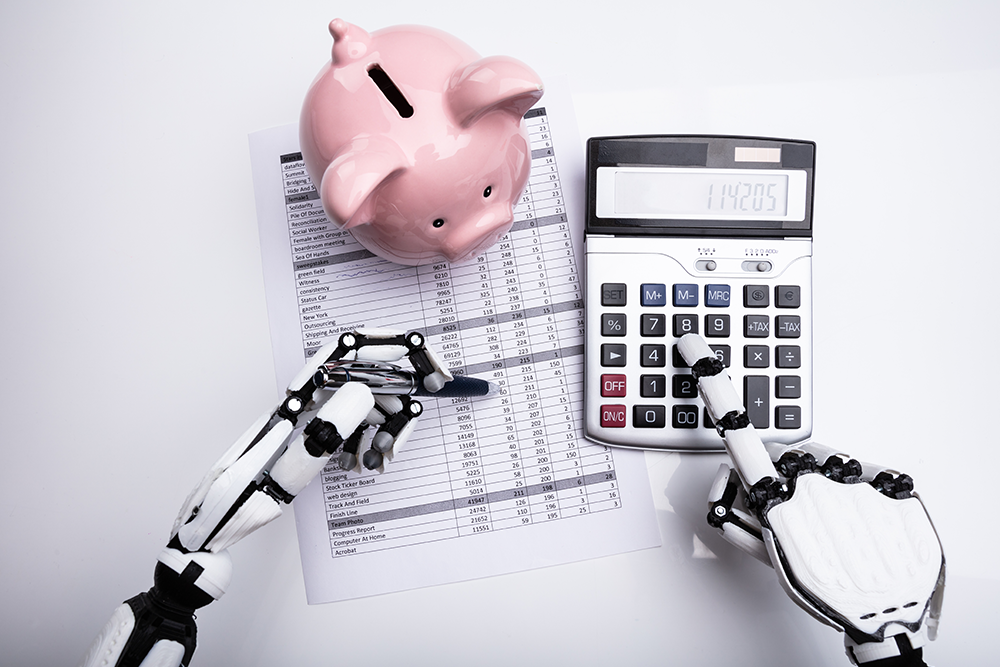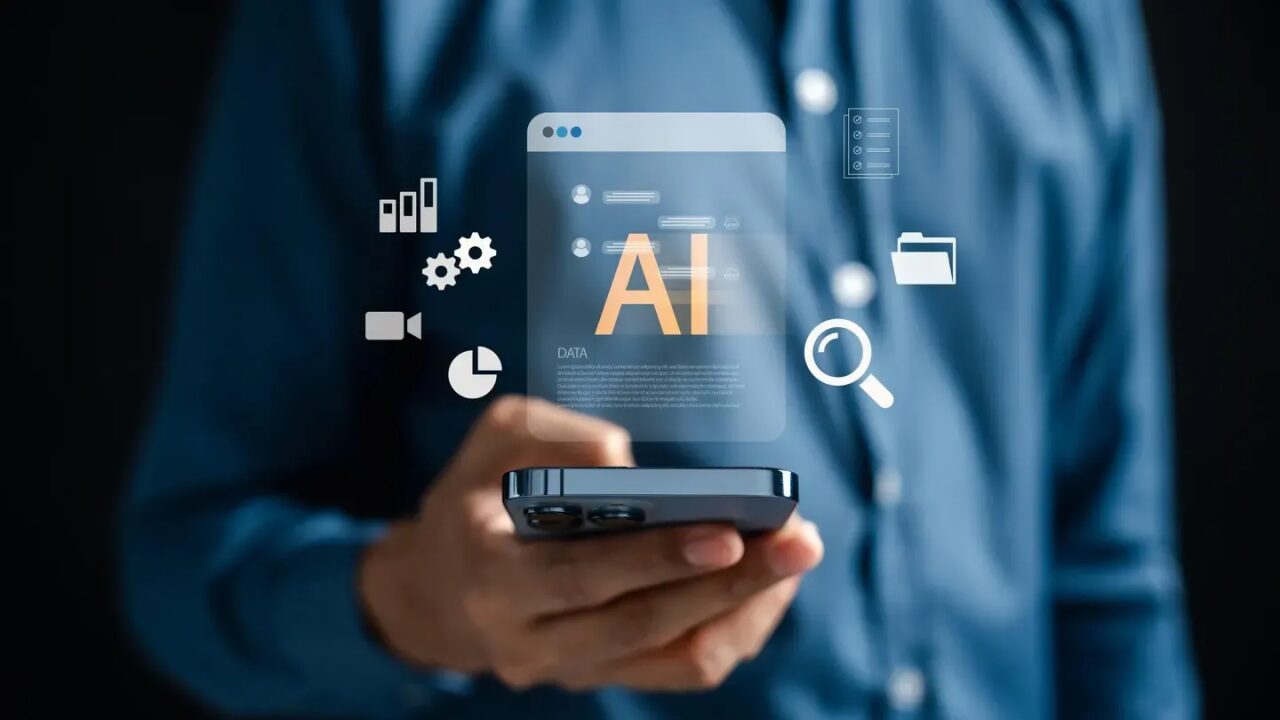Artificial Intelligence In Accounting And Finance
2 July 2021
As artificial intelligence has done for every industry, it’s making a significant impact in the world of accounting and finance. From saving time and money and providing insights, AI-enabled systems for accounting and finance are the way finance professionals and their firms will stay competitive and attract the next generation as employees and customers.

If you could reduce costs by 80 per cent and the time it takes to perform tasks by 80 or 90 per cent, would you be interested? According to Accenture Consulting, robotic process automation will yield these results for the financial services industry. For accounting firms and finance professionals to deliver services their clients will demand and compete with other professionals for business, they must begin to embrace artificial intelligence.
Benefits of Artificial Intelligence for Accountants and Finance Professionals
New technology is changing the way people work in every industry. It’s also changing the expectations clients have when working with companies. The same is true for accounting. Artificial intelligence can help accountants be more productive and efficient. An 80-90 per cent reduction in the time it takes to do tasks will allow human accountants to be more focused on providing counsel to their clients. Adding artificial intelligence to accounting operations will also increase the quality because errors will be reduced.
When accounting firms adopt artificial intelligence to their practise, the firm becomes more attractive as an employer and service provider to millennials and Gen Z professionals. This cohort grew up with technology, and they will expect prospective employers to have the latest technology and innovation to support not only their working preferences of flexible schedules and remote locations but also to free them up from mundane tasks that machines are better suited to complete. As clients, millennials and Gen Zers will determine who to do business with based on the service offerings they can provide. As more accounting firms adopt artificial intelligence, they will be able to provide the data insights made possible by automation while those who don’t commit to the technology will not be able to compete.
Robotic process automation (RPA) allows machines or AI workers to complete repetitive, time-consuming tasks in business processes such as document analysis and handling that are plentiful in accounting. Once RPA is in place, time accountants used to spend on these tasks is now available for more strategic and advisory work. Intelligent automation (IA) is a more sophisticated version of RPA. IA can mimic human interaction in many cases, such as understanding inferred meaning in client communication and using historical data to adapt to an activity. There are multiple applications of RPA and IA in accounting work.
AI can often provide real-time status of financial matters since it can process documents using natural language processing and computer vision faster than ever making daily reporting possible and inexpensive. This insight allows companies to be proactive and adjust course if the data show unfavourable trends.
Automated authorization and processing of documents with AI technology will enhance several internal accounting processes including procurement and purchasing, invoicing, purchase orders, expense reports, accounts payable and receivables, and more.
In accounting, there are many internal corporate, local, state and federal regulations that must be followed. AI-enabled systems help support auditing and ensure compliance by being able to monitor documents against rules and laws and flag those with issues. Fraud costs companies collectively billions of dollars each year and financial services companies have $2.92 in costs for every dollar of fraud. Machine learning algorithms can quickly sift through enormous amounts of data to discern potential fraud issues or suspicious activity that might have been otherwise missed by humans and flag it for further review.
Changing the Human Mindset
It seems like the only barrier to artificial intelligence adoption in accounting is getting people on board with the change. Nearly 85 per cent of executives understand that AI will help their companies attain or sustain a competitive advantage according to a study from The Boston Consulting Group and MIT Sloan School of Management. Since the chief executives seem to understand the importance of artificial intelligence, it just requires a mindset shift from the accounting professionals to accept the changes. With an assist from AI-enabled systems, accountants are freed up to build relationships with their clients and deliver critical insights.
To help accountants accept and hopefully embrace the tech addition to accounting firms, it’s vital that the benefits of automation and artificial intelligence are shared with them and they are provided with the proper training and any support necessary to learn how best to use AI to their advantage.
AI and automation in accounting and finance are just beginning. However, the technology is getting more sophisticated, and the tools and systems available to support accounting are expanding at a rapid pace. Accountants that resist these changes will not be able to keep up with others who have the advantage of time and cost savings and insights AI can provide.
Related Articles
7 Legal Tech Trends That Will Reshape Every Business in 2026
By now, “smart” versions exist of just about every home appliance, gadget and gizmos we can think of. However, manufacturers continue[...]
8 Skills You Need To Manage The New AI Agent Workforce
By now, “smart” versions exist of just about every home appliance, gadget and gizmos we can think of. However, manufacturers continue[...]
Should AI Have Free Speech?
By now, “smart” versions exist of just about every home appliance, gadget and gizmos we can think of. However, manufacturers continue[...]
5 Amazing AI Agent Use Cases That Will Transform Any Business In 2026
By now, “smart” versions exist of just about every home appliance, gadget and gizmos we can think of. However, manufacturers continue[...]
8 Smartphone Trends That Will Shape 2026
By now, “smart” versions exist of just about every home appliance, gadget and gizmos we can think of. However, manufacturers continue[...]
7 Media Trends That Will Redefine Entertainment In 2026
By now, “smart” versions exist of just about every home appliance, gadget and gizmos we can think of. However, manufacturers continue[...]
Sign up to Stay in Touch!
Bernard Marr is a world-renowned futurist, influencer and thought leader in the fields of business and technology, with a passion for using technology for the good of humanity.
He is a best-selling author of over 20 books, writes a regular column for Forbes and advises and coaches many of the world’s best-known organisations.
He has a combined following of 4 million people across his social media channels and newsletters and was ranked by LinkedIn as one of the top 5 business influencers in the world.
Bernard’s latest book is ‘Generative AI in Practice’.










Social Media